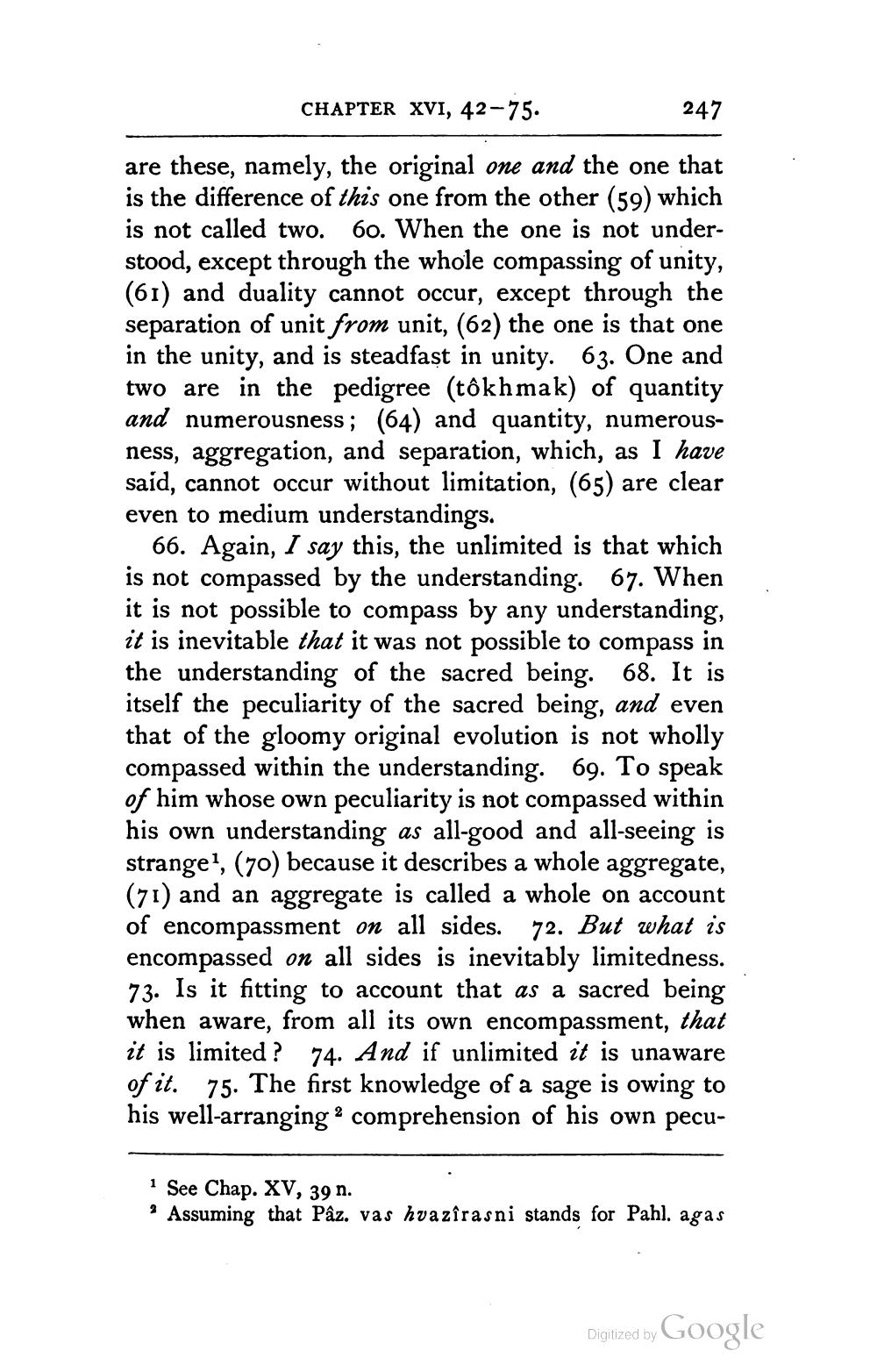________________
CHAPTER XVI, 42–75.
247
are these, namely, the original one and the one that is the difference of this one from the other (59) which is not called two. 60. When the one is not understood, except through the whole compassing of unity, (61) and duality cannot occur, except through the separation of unit from unit, (62) the one is that one in the unity, and is steadfast in unity. 63. One and two are in the pedigree (tôkh mak) of quantity and numerousness; (64) and quantity, numerousness, aggregation, and separation, which, as I have said, cannot occur without limitation, (65) are clear even to medium understandings.
66. Again, I say this, the unlimited is that which is not compassed by the understanding. 67. When it is not possible to compass by any understanding, it is inevitable that it was not possible to compass in the understanding of the sacred being. 68. It is itself the peculiarity of the sacred being, and even that of the gloomy original evolution is not wholly compassed within the understanding. 69. To speak of him whose own peculiarity is not compassed within his own understanding as all-good and all-seeing is strange1, (70) because it describes a whole aggregate, (71) and an aggregate is called a whole on account of encompassment on all sides. 72. But what is encompassed on all sides is inevitably limitedness. 73. Is it fitting to account that as a sacred being when aware, from all its own encompassment, that it is limited ? 74. And if unlimited it is unaware of it. 75. The first knowledge of a sage is owing to his well-arranging a comprehension of his own pecu
1 See Chap. XV, 39 n. · Assuming that Pâz. vas hvazîrasni stands for Pahl. agas
Digitized by Google




